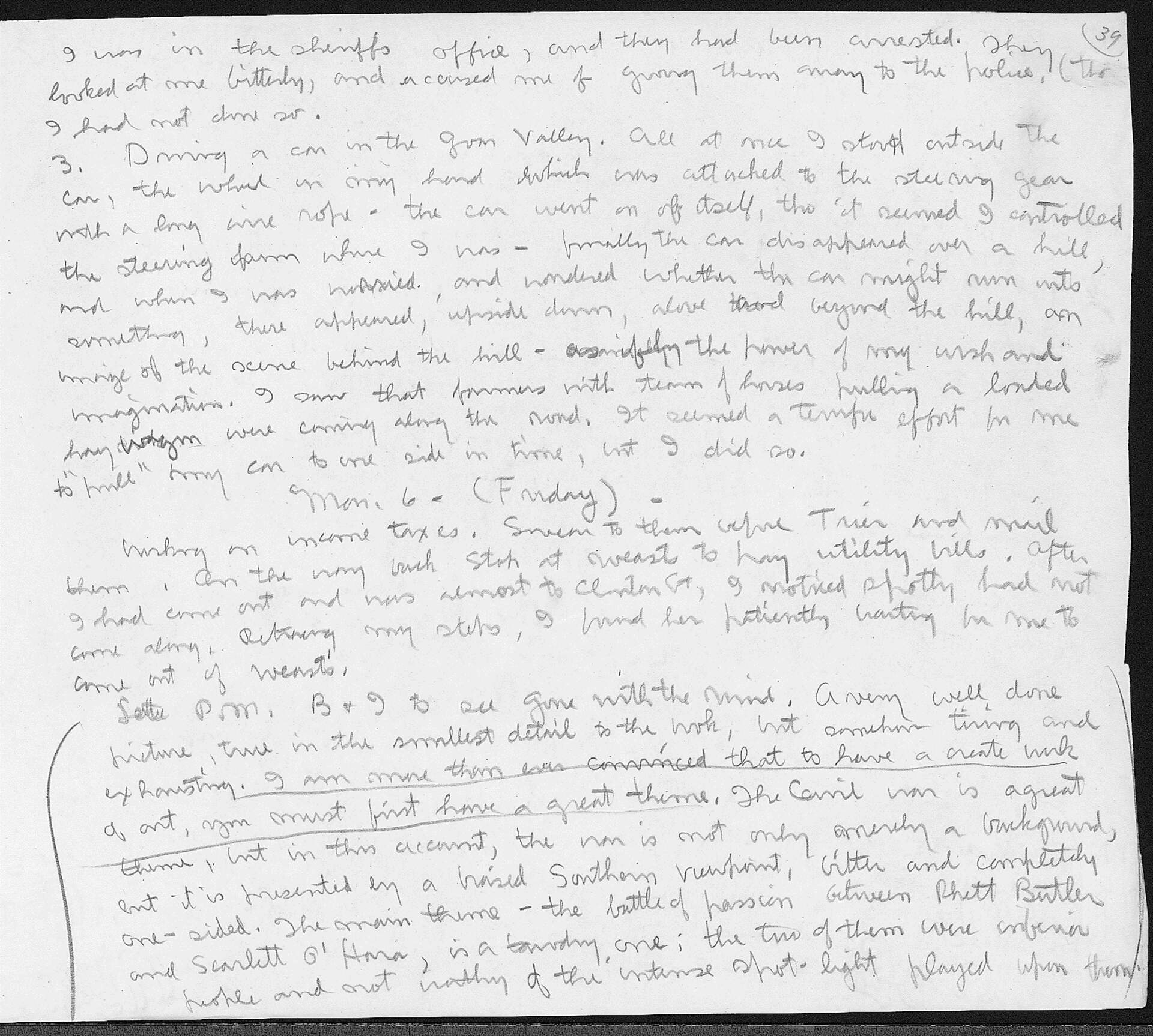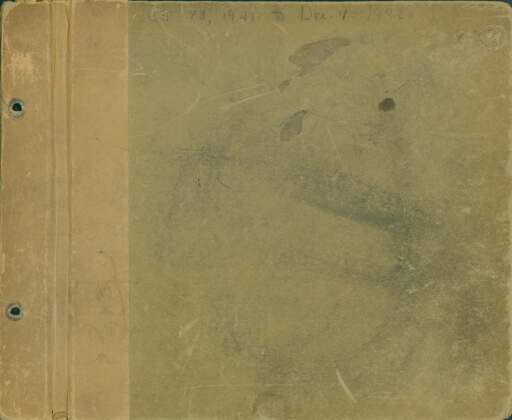Charles E. Burchfield (1893-1967)Volume 44, Page 39
March 5, 1942 - March 6, 1942
cardboard notebook bound with string
8 1/2 x 11 inches
Gift of the Charles E. Burchfield Foundation, 2000
39. I was in the sheriff’s office, and they had been arrested. They looked at me bitterly, and accused me of giving them away to the police. I had not done so.
3. Driving a car in the Zoar Valley. All at once I stood outside the car, the wheel in my hand which was attached to the steering gear with along wire of rope – the car went on of itself, tho it seemed I controlled the steering from where I was – finally the car disappeared over a hill, and when I was worried and wondered whether the car might run into something, there appeared, upside down, above and beyond the hill, an image of the scene behind the hill – as if by the power of my wish and imagination. I saw that farmers with team of horses pulling a loaded hay wagon were coming along the road. It seemed a terrific effort for me to “pull” my car to one side in time, but I did so.[i]
Mar. 6 – (Friday) –
Working on income taxes. (CD) to them before Tues and mail them. On the way back stop at Weast’s to pay utility bills. After I had come out and was almost to Clinton St, I noticed Spotty had not come along. Returning to my stops, I found her patiently waiting for me to come out of Weast’s.
Late P.M. B + I to see Gone with the Wind. A very well done picture, true in the smallest detail to the book, but somehow tiring and exhausting. I am more than ever convinced that to have a create (sic) work of art, you must first have a great theme. The Civil war is a great theme, but in this account, the war is not merely a background, but it is presented by a biased Southern viewpoint, bitter and completely one-sided. The main theme – the battle of passion between Rhett Butler and Scarlett O’Hara, is a tawdry one; the two of them were interior people and not worthy of the intense spot-light played upon them.[ii]


